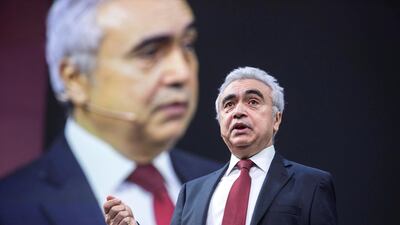Progress towards energy efficiency globally slumped to the slowest rate in a decade due to the coronavirus pandemic, according to the International Energy Agency (IEA).
"Overall, investment in energy efficiency worldwide is on course to fall by 9 per cent in 2020," the Paris-based agency said in a report released this week.
“Global primary energy intensity, a key indicator of how efficiently the world’s economic activity uses energy, is expected to improve by less than 1 per cent this year (2 per cent in 2019), the weakest rate since 2010,” the IEA said. “This is well below the level of progress needed to achieve the world’s shared goals for addressing climate change, reducing air pollution and increasing access to energy.”
Investment in new energy-efficient buildings, equipment and vehicles are expected to have declined this year as the global economy contracted as a result of the pandemic, which disrupted global trade, travel and tourism and led to lockdowns.
The purchase of new cars that are more efficient than new models fell, the agency said. In tandem, the new and more efficient homes and buildings is expected to have declined, the IEA said.
“In industry and commercial buildings, lower energy prices have extended payback periods for key efficiency measures by as much as 40 per cent, reducing their attractiveness compared with other investments," the IEA said.
Technical efficiency improvements in some markets have also been delayed as lockdowns and physical distancing curtailed building contractors’ physical access to premises.
Smart meter installations were 80 per cent to 90 per cent lower at the height of lockdowns in India and the UK but had returned to 2019 levels by the third quarter of 2020, the IEA said.
Economic uncertainty may delay additional investment in the construction sector, with future growth projections for energy-efficient material being 6 per cent weaker than pre-pandemic projections, it said.
The IEA also said government stimulus packages, intended to cushion the impact of the pandemic and help economies recover, will "heavily influence future efficiency trends".
“We welcome plans by governments to boost spending on energy efficiency in response to the economic crisis, but what we have seen so far is uneven and far from enough,” said IEA executive director Fatih Birol.
“Energy efficiency should be at the top of to-do lists for governments pursuing a sustainable recovery – it is a jobs machine, it gets economic activity going, it saves consumers money, it modernises vital infrastructure and it reduces emissions."
Europe accounts for 86 per cent of global public stimulus announcements for efficiency, with the remaining 14 per cent split between the Asia-Pacific region and North America.
The IEA has tracked $66 billion of funding for energy efficiency-related measures announced as part of government stimulus packages to the end of October with a large share ($26bn) allocated to the buildings sector. Around $20bn has also been earmarked to accelerate the shift to electric vehicles, including for new vehicle charging infrastructure.


